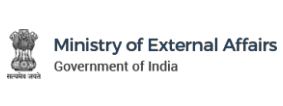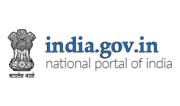"India : The Next Decade", Keynote Address by External Affairs Minister Shri Natwar Singh at Chatham House, London
June 27, 2005
Mr. Foreign Secretary, Professor Bulmer-Thomas, Mr. Martin Wolf, Ladies and Gentlemen,
I am delighted and honoured to have this opportunity of speaking at Chatham House, which, in its chequered existence, has done so much to erode, if not eliminate, the deeply entrenched and totally erroneous Anglo-Saxon ‘mantra’ that to have ideas or to be called an intellectual was not only reprehensible but a symptom of mental disorder. I am this morning venturing to share with you an idea or two. And let me assure you that the Foreign Minister of India is sound of mind and, to paraphrase E.M. Forster, ‘does not have an undeveloped heart’.
I also wish to express my appreciation to Foreign Secretary Jack Straw for his participation. We know of his long attachment to my country and the encouragement and support he has always given to the strengthening of our unique relationship.
It is appropriate that the Rajiv Gandhi Institute for Contemporary Studies should be associated with the forward-looking theme of the conference, a subject which has been engaging global opinion. I had the privilege of being very closely associated with Rajiv Gandhi. He was a Prime Minister and personality who worked to realise an inspiring vision of India and the enthusiasm and promise he brought communicated itself to the people of India. He believed that with dynamism, dedication, determination, modern management and technological innovativeness, the social and economic challenges of the country could be met and overcome. He was already a man of the 21st Century when he became Prime Minister in 1984. He altered the stagnant mind-set of hundreds of millions of people in India.
A decade in today’s world is a long time in a nation’s life, given the acceleration, which occurs within dynamic societies and economies. Witness the transformation of India in the decade since we embraced economic liberalisation in the 90s. However, it seems to me from what respectable forecasting institutions have projected that India – together with China – are more the flavour of the century, than of the decade. McKinsey had forecast a steeply rising graph of India’s economic rise some time ago. More recently, we have the report of Goldman Sachs, which predicts that India will be the third largest economy in dollar terms within 40 years (it already is the fourth largest economy in terms of purchasing parity). This was followed by the projection of multiple scenarios by the American National Intelligence Council. In every scenario they found a central global role for India. Most recently is a study by the Deutsche Bank, which brings forward the time, which may be required by India to become the third largest global economy. Many in the audience would be familiar with the recent special coverage given to the rise of India and China in the two leading economic papers of London, ‘The Economist’ and the ‘Financial Times’. For the latter, Martin Wolf himself was responsible.
In the next decade, therefore, we could see India positioning itself for greater accomplishments as the century progresses. Today let me delineate the contours for our own map for 2005 – 2015.
Not so long ago India was a byword for poverty. This is no longer the case. But India is still a country with a large number of poor people. The number of the poor as a percentage of the population has been shrinking steadily but a fifth of the population is unable to escape from extreme poverty. Prosperity in a nation cannot be sectional. The national task is not complete until a life of decent living, education, health and real choice is offered to all its people, and not only to many, or even most, of its people. The core challenge before India, despite dramatic advances, therefore, will remain in the coming decade that of a developing country. It will be centred on full literacy, vastly improved statistics for maternal and infant mortality, acceptable standards of nutrition and healthcare. India is today in a confident mode, not a self-congratulatory one. We are mindful of the long and steep road still to be traversed to consign poverty to a historical memory. The policy of the Government headed by Prime Minister Dr. Manmohan Singh is determined on finding the right emphasis in public policy on the social agenda, expressed generally through the millennium development goals. Priority is given to rural infrastructure and poverty elimination.
I have, in a light-hearted manner sometimes remarked that every statement about India is true – so is its opposite. Even before our economic surge, it had been said that India is a rich country with a lot of poor people.
India is now spoken of as a country of the future and of great potential. Given our history, we can stretch our perspectives in evaluating the India phenomenon along several time horizons. We can take the shortest perspective of the economic reform and liberalisation process, which started in 1991 after a collapse in our balance of payments and the almost simultaneous collapse of the Soviet Union. The programme of elaborate economic reform had been initiated earlier, but this was a watershed. Dr. Manmohan Singh, as the then Finance Minister, played a pivotal role. The brisk momentum of reform since then has been maintained by all governments.
We recognise the sectors where galloping reform is immediately needed - infrastructure, pertaining to airports, railways, ports, roads, energy and telecommunications including mobile phones. Transaction costs in terms of time and expense will otherwise be a brake on both internal and external investment within the economy. Many advances have been made, but concentration of efforts will be redoubled in the decade to come.
In the coming decade, India offers partnership to the outside world in all areas of economic and IT activity, ranging from agro-processing, pharmaceuticals and manufacturing to higher - end services and knowledge based industries. In the next decade, the integration of India with the global economy will grow apace and we will seek partnerships and alliances to mutual advantage. Potential partners abroad could do well to seek out the ‘India Advantage’ as a solutions hub, a remote service provider, a base in sophisticated research and development, manufacturing, joint venture partner, a location for captive investment or a shareholder in exploring commercial spin-off potential in new technologies.
Areas of cooperation would spread from traditional exports to high technology areas such as the full range of information technology, life sciences, biotechnology, bio-informatics, materials sciences, applications of nano-technology, sophisticated data and systems processing, business and knowledge process outsourcing or animation and other processes in the area of entertainment. We can jointly define a new understanding of globalisation in the next decade. In the partnerships India will be forging in the next decade, the UK will occupy a special place, given the many features of our unique relationship. Globalisation must have a more benign profile. The profit incentive, admirable in many ways, must not disregard ethical and moral imperatives.
Let’s now turn to India’s foreign policy. Speaking on behalf of a country prepared to assume a pivotal role in its own region as well as in the global community, let me enunciate our foreign policy objectives and vision for the coming decade. Foreign policy is what you do. Diplomacy is how you do it.
Our foreign policy has been an independent one since the days of Pandit Jawaharlal Nehru, and must remain thus. Further, being a national undertaking, it has enjoyed broad national consensus, barring a few minor hiccups, over these last fifty-eight years.
There are no precedents for managing a democracy of 1.2 billion people. The preamble to our Constitution enjoins the dignity of the individual and the unity and integrity of the nation. So, for ourselves we seek, first and foremost, security and economic prosperity. These are not clichés, but essential to our providing decent living to a billion-strong population. These objectives must motivate India’s interaction with the world in all matters, whether they are political, economic, strategic, or cultural.
Ideologies, in their traditional garbs are taking a backseat and rightly so. The international agenda has to be realistic when enumerating its contemporary priorities - human resources, knowledge capacities, economic enterprise, infrastructure and strategic strengths. Then there are its innovative skills, natural resources, the successes of Indians living and working abroad and their cultural influence. These elements, combined with the physical space that a nation occupies, contour its geopolitical worth and provide the stimulus for its aspirations. India is fortunate in many of these aspects.
With the major countries and regions of the world, we are committed to an energetic schedule of political, economic and security exchanges. There already exist greater trade and bi-directional investments, people-to-people exchanges, and cultural interchanges.
With the US, we have a strategic partnership that spans a wide range of cooperative endeavour. Dr. Manmohan Singh would be making an official visit to the United States next month and addressing a joint session of Congress. Our relations with the US have never been better. With Russia, we have broad ranging co-operation and have embarked on major programmes on energy security. Russia is helping us build a civilian nuclear power plant and we are investing in Russian oil fields. With China, while continuing a dialogue on our border difference, we have greatly expanded the areas of our political, economic, commercial and cultural interaction. Earlier this month, I visited Vladivostok for the 4th trilateral meeting of the Foreign Ministers of India, Russia and China. We discussed issues of common interest including trilateral projects.
We are all aware of the dangers of the growing phenomenon of terrorism, proliferation of technologies and weapons of mass destruction by authoritarian and failed States and unstable military regimes. In the UK, you have shown sensitivity to our concerns on terrorism.
Today we need to address new challenges with all the ingenuity and capabilities at our disposal. The UK’s Strategy Paper for the Foreign & Commonwealth Office in December 2003 outlines these objectives as the foremost of its international priorities. The paper also identifies India as one of the countries the UK wished to develop a strategic partnership with.
During Prime Minister Manmohan Singh’s visit in September 2004, a Joint Declaration –‘Towards a New and Dynamic Partnership’ was adopted. Both sides agreed to upgrade bilateral relations through a comprehensive strategic partnership. This includes, among a wide menu of activities, cooperation in civilian nuclear activities and space programmes, high technology trade, basic and applications research, defence cooperation including co-production of defence equipment, apart from joint action against terrorism.
We have a dialogue with the UK on civilian space and nuclear cooperation, export controls, proliferation and disarmament.
India has an expanding technological base, and our space programme has proved its potential and worth. Our energy requirements are enormous, and to sustain the momentum of rapid economic growth we need to tap nuclear energy, for which the cooperation of the international community is welcome.
India is a responsible nuclear power, committed to tight control over proliferation of technologies of weapons of mass destruction, a commitment that has not necessarily been matched by some signatories of the NPT. I also recently piloted the WMD and their delivery systems (Prohibition of Unlawful Activities) Bill in the Indian Parliament, which enshrines this commitment into national law.
Prime Minister Tony Blair has invited Dr. Manmohan Singh to participate, along with other outreach countries, in the talks on climate change and other current global economic issues, at the G-8 Summit in Gleneagles in early July, 2005. That meeting, we hope, will come up with workable solutions to promote a cleaner environment and greater energy efficiency.
We look forward to Mr. Blair’s visit to Delhi in September for the 6th India-EU Summit, which we see as especially important in our relations with the EU, for it will launch the India-EU Joint Action Plan. This is the first such comprehensive Action Plan that we have with any of our partners. The Action Plan gives us the opportunity to intensify our engagement with each other over the whole range of issues on which we interact, from enhancing opportunities for partnership and alliances in trade, investment and technology to strengthening joint efforts to fight terrorism. It seeks to give shape to our strategic partnership with the EU, launched at The Hague in November last year at the landmark 5th India-EU Summit. We have been following with great attention, the recent deliberations in the EU as to the directions in which its future lies. We have no doubt that the EU will emerge an even stronger partner from this period of introspection.
India is a force for stability within Asia. It is building stronger ties with its extended neighbourhood – Central Asia, the Persian Gulf, Indian Ocean and Southeast Asia – through greater economic, commercial and security engagement. We have civilizational links with the Arab world and have always supported the just aspirations of the Palestinian people and the establishment of an independent state of Palestine. We were happy to see the revival of the peace process and hope it leads to the establishment of a sovereign, independent and viable state of Palestine with safe and secure and well defined borders, in line with the relevant UNSC Resolutions and the Quartet Road Map, living side by side with the state of Israel.
The existing world order needs to take into cognisance the aspirations and hopes of the Islamic world. India is a good example of how this can be done through democratic and consensual means, thereby strengthening the forces of coherence and integration within societies.
Our relationship with Africa and with Latin America finds new substance. We believe that techno-economic cooperation amongst us holds great promise and, in this endeavour, the Indian private sector is fully involved. The India-Brazil-South Africa initiative brings three continents together in the pursuit of development, and would prove the relevance of South-South cooperation for an effective say in international affairs.
As regards South Asia, it is now a region increasingly aware of the benefits of regionalism. Although SAARC was formed eighteen years ago, it is only in the last two years that we have come together with an economic and social agenda of some purpose. Problems do exist, but leaders should not contemplate problems; they should find solutions.
India’s neighbourhood and look east policy, pragmatic and fortified with a blend of political sagacity and economic confidence, is helping prevail over old misgivings in the region. Our composite dialogue with Pakistan shows promise. India will even take unilateral measures where necessary, to direct the building of a strongly interconnected subcontinent, and thus promote the well being of this quarter of humanity. Given our size and resources, we recognise that India has a special responsibility in switching on the engine of South Asian prosperity. Economic progress would also yield complementary political benefits. We know it is a complex process, but we will stay engaged.
Expanding links with the economies of South East Asia, and with Japan, China, and South Korea, could create a community of Asian dynamism, one that augments our capabilities and multiplies our prospects. The East Asian summit to be held later this year will articulate our common purpose and ambitions.
Thus, even the new dynamism in India-China relations will have a significant economic and geo-political impact in Asia. I am told that, today, any critical thinking on an issue needs to be tapped from the ‘blog’. One recent blog says, “The Financial Times obsesses over China and India even more than the Wall Street Journal does. One did not think it possible, and yet there it is.” For this, I believe we also have to thank our Chairman, Mr. Martin Wolf, here who plays an important role in determining what the Financial Times writes about.
A decade from now the population of our planet is predicted to reach 7.2 billion people, with more than 1.4 billion of them being Chinese and 1.2 billion being Indian. Of the Indian population, some 68% or more than 820 million will be in the active working age group. By 2015, the technological, demographic and social changes of Asia will influence every aspect of global and local existence.
In all of Asia, in West Asia, in the Indian Ocean region, and the Asia-Pacific region as a whole, India, given its size and economic reach, is an essential partner in any arrangement that wants to successfully promote stability and security. From preventing failed states becoming havens for terrorism, to preventing trans-national crimes, to protecting the sea-lanes of Asia, to spurring regional development, we see scope for a much broader collaborative regional and multilateral agenda for India, regionally and multilaterally. Our approach emphasises dialogue, partnership and cooperation. It aims to reinforce the principles of democracy, pluralism, secularism, economic development and multilateralism.
The function of multilateralism as a civilized clearinghouse for threats that face nations collectively is not a recent phenomenon. Since its founding in 1945, the United Nations is engaged in the most intense process of introspection in its history. Sixty years down the road, if there is any unanimity of views within the UN membership, it is on the need for reform, among other things, to address the democratic deficit that exists. Such reform cannot be selective or piecemeal, but must comprehensively address all the shortcomings of the current arrangements. Recent crises warn us that it is vital to truly reflect the collective will of the community of nations.
There is also the conviction that the need for reform is nowhere greater than in the Security Council. The current permanent membership of the Council represents the world of 1945. Most of its decisions pertain to developing countries, those countries that find little representation in this most critical of decision-making bodies. An effective way to achieve global stability would be through greater consultation. A collective voice is heard and heeded better.
India’s presence as a permanent member of the Security Council is the best means to authenticate and reinforce the representative character of the Council. The weight of the opinion of a billion people, representing the world’s largest democracy, would validate the agenda and decisions of the Council in the perspective of the vast majority of developing countries.
India, as a founder member, has always been a team player in the United Nations. It has been at the forefront of the struggle against colonialism and apartheid. It has advocated some of the most practical yet far-reaching proposals to secure nuclear disarmament. It has been one of the largest contributors of troops to United Nations peacekeeping efforts all over the world, particularly in Africa. India has advocated greater flows of assistance to the less developed countries, even as it has contributed significantly towards such efforts, despite its own limited resources.
We value the support for our candidature that the United Kingdom has extended and look forward to working with it during the current deliberations in the UN General Assembly.
A decade from now is 2015. And 2015 is also a year for which the world also has set some serious goals for itself---the Millennium Development Goals. With so large a percentage of the global population that is presently disadvantaged, if Asia does not meet these goals, if the economic potential of Asia, and India within it, are not harnessed to the task, global goals will not be met.
All this adds up. For India, the next decade will be a great mosaic of opportunity and challenge. It will also be a time to forge stronger partnerships in our quest to play a leading role in harnessing the enormous power of this globalising inter-dependent world to build a fairer rule based system that is just and sustainable. We must have globalisation with a human face.
Indian and the UK have a unique relationship. This has now to be yoked to the opportunities of tomorrow. Compatibility between us is already leading to a substantial inflow of Indian companies, capital, students and visitors into the UK. We are natural partners, particularly in the field of knowledge and services, apart from the growing strength in manufacturing in India.
The community of Indian origin in the UK has been a model of achievement, professionalism and positive integration. Its contribution to national prosperity dedication to excellence is recognised and applauded here. I hope that in the coming decade it will play an even more creative role in building mutually beneficial partnerships between the country where it has ancient roots and where it has struck new ones.
India and the UK have shared beliefs in the values by which we govern ourselves and in the necessity for significant global action in the eradication of poverty and in addressing the comprehensive multilateral agenda before us. We can be a model of innovative bilateral partnership in the fields of academic, technological, cultural and economic exchanges. The coming decade must see this promise realised through the partnership of our peoples. I am confident that this conference will move us in the right direction towards this end.
Ladies and gentlemen, the next decade will certainly be worth looking forward to. But India is not stopping with a decade. A century, or longer, is good too.
Thank you.







